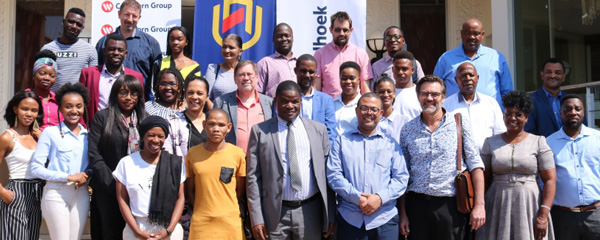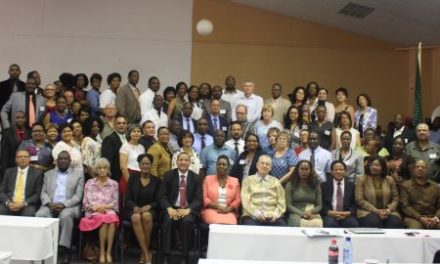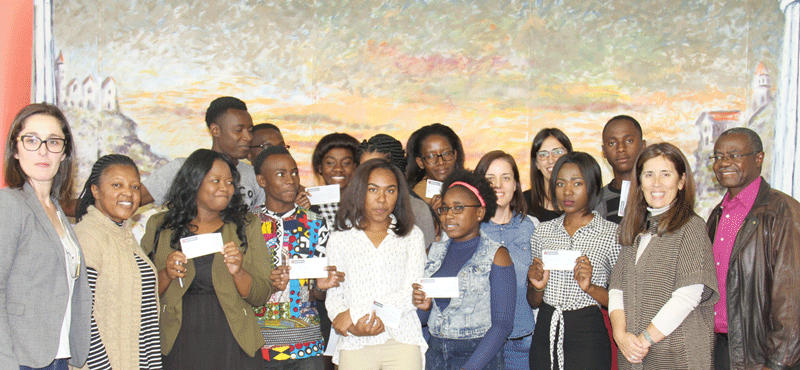
Journos, media students zoom in on the investigation of illicit financial flows and money laundering

The Namibia University of Science and Technology supported by Bank Windhoek and Capricorn Group, last week hosted a two-day workshop for journalists and media students on the Investigation of Illicit Financial Flows and Money Laundering in Windhoek.
The workshop’s aim was to focus, facilitate, and draw on a multi-stakeholder approach to understanding the problem of corruption and illicit financial flows in Namibia, and how investigative journalists might, or might not be adequate watchdogs in uncovering the extent of the problem, the players and facilitators, and the effect that these corrupt practices are having on the economy.
Speaking at the opening of the workshop, Jacquiline Pack, Bank Windhoek’s Executive Officer for Marketing and Corporate Communication Services highlighted the important role the media and civil society plays in exposing corrupt practices.
“Bank Windhoek, as a responsible corporate citizen with zero tolerance for theft, corruption and illegal activities has a robust system of detection and analysis of fraudulent activities and in compliance with the law reports suspicious transactions as soon as they are suspected or detected. From the basic Know Your Client vetting when dealing with customers to more sophisticated techniques of detection, Bank
Windhoek is committed to play its part in the combating and prevention of illegal activities,” Pack said.
“More importantly, and the reason why we are here is the nation’s reliance on the media to investigate and expose illegal and corrupt practices and illegal financial flows. Often schemes are hatched which fails to be detected by even the strictest safeguards. It then falls on whistle-blowers and good citizens to report or provide information to expose such activities. By investigating and exposing such activities, we are contributing the progress of Namibia by showing the international community that the country takes a pro-active approach in the combating of international crime and corruption.
Professor Reg Rumney, the former director of the SA Reserve Bank Centre for Economics Journalism at Rhodes University, also stressed the media’s role to help educate the public on how they can help to prevent illicit flows by either informing them of their duties as law-abiding citizens and what the law expects of them.
“Capricorn Group recognises the impact that corrupt practices and financial crime can have on the Namibian economy and therefore it proactively manages the risk through amongst others the use of technology and forensic investigations.
Workshops like these supported by Capricorn Group also play an important role in creating general awareness and facilitate collaboration amongst key stakeholders”, said Marlize Horn, Capricorn Group Executive for Brand and Corporate Affairs of Capricorn Group.
Caption: Attendees at the Bank Windhoek and Capricorn Group Illicit financial flows investigative workshop for journalists held last week in Windhoek.













































